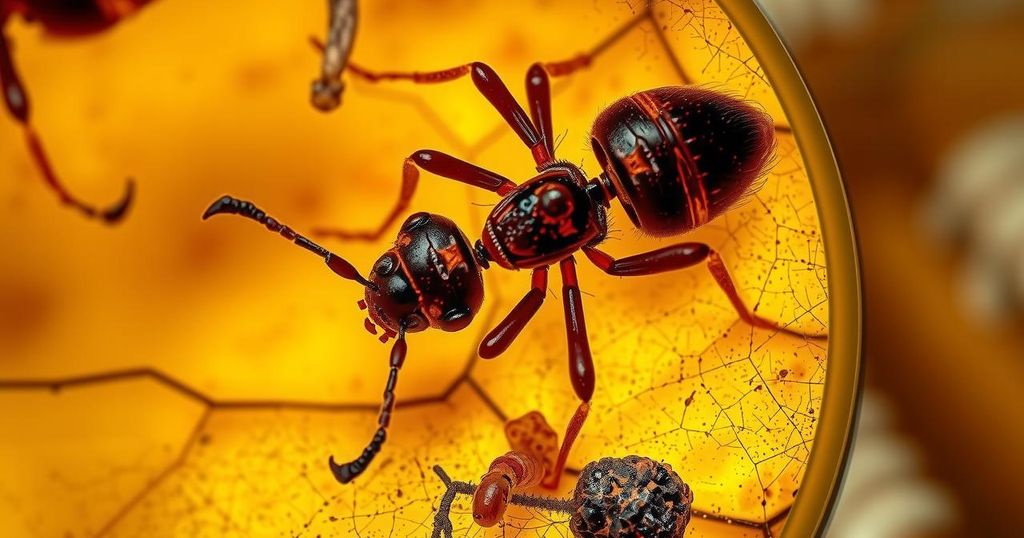Oldest Ant Fossil Unearthed in Brazil, Dating Back 113 Million Years

A 113-million-year-old ant fossil has been found in Brazil, representing the oldest ant discovery to date. The fossil, which belongs to an unknown species, provides valuable insights into the evolutionary history of social insects and raises questions about insect adaptability over millions of years.
Researchers announced the discovery of the oldest known ant fossil, dated at 113 million years old, found in Brazil. This extraordinary finding offers significant insight into the evolution of social insects, particularly ants. The fossil belongs to a species unknown to science, which suggests that ants have existed far longer than previously thought.
The fossil was unearthed in the Crato Formation of northeastern Brazil, a site well-known for its well-preserved prehistoric specimens. The team’s findings indicate this ant exhibits unique characteristics, setting it apart from existing species. This discovery highlights the diversity and adaptability of ants through millions of years.
Entomologists are excited about what this means for our understanding of ant evolution and their ecological roles. The finding opens up new pathways for research into how insects have thrived and adapted over the ages, particularly amidst changing environments. Experts are eager to study other fossils from the same site to gain further insights into prehistoric life, especially the evolutionary history of social insects like ants.
In conclusion, the discovery of a 113-million-year-old ant fossil in Brazil is not just a milestone for entomology but also a significant contribution to the understanding of evolutionary history. This finding underlines the long-standing presence and diversity of ants, prompting further investigations into ancient ecosystems. The implications for science are vast as researchers continue to explore the details surrounding this unique species and its environment.
Original Source: kdhnews.com







